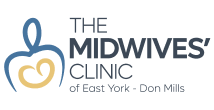Care for the Newborn
Breastfeeding
In the first 24 hours after birth, most babies will want to feed several times.
Colostrum is the name of the early milk that is present in the breast at the time of birth and it is the only thing that you baby needs to eat.
In the first few days you will make colostrum.
Your body will typically begin to produce breast milk between 3 and 5 days after your birth.
After 24 hours, babies need to eat between 8 and 12 times in a 24 hour period. Their stomachs are very small, about the size of a chickpea, and therefore they need to eat frequently.
Your midwife will normally see you several times in the first week to help with breastfeeding and to weigh the baby.
It is normal for babies to lose some weight in the first few days and typically return to birth weight around 2 weeks of age.
Different midwives may give you different advice or suggestion surrounding breastfeeding based on their experience with what tends to work for women; we ask that you consider the advice, give the suggestions a try, and see what works best for you and your baby.
Feeding Log
We have provided a Feeding Log to keep track of how much your baby feeds and how often wet and dirty diapers occur. It is very helpful to use this Log in the first of week of life for both you and for your midwives.
Diapers
Your may see a red or orange colour on a diaper after your baby urinates. This is also common in the first few days of life and this is called uric crystals. With baby girls, you may even see a little bit of blood as they may have a discharge similar to a period in the first few days; this is also normal.
If you are using disposable diapers, it is difficult to tell when a baby urinates so we recommend that you put a tissue in the diaper.
In the first 24 hours of life, we expect your baby to have one wet diaper and at least one bowel movement that is meconium – a black sticky substance. Because meconium is difficult to clean off baby’s bums, you can rub olive oil all over their skin to make cleaning up a little easier.
As your breast milk comes in, you can expect your baby’s bowel movements to change colour over the first week of life: from black to a green colour; and finally, to a yellow seedy colour.
Breathing
Newborn infants have irregular patterns of breathing and they may take several quick breaths followed by a pause; this is a normal respiration pattern and you can expect your baby to breathe 40 to 60 times in one minute.
Skin
It is very common for new babies to have a blue tinge to both hands and feet and for the extremities to feel slightly cool to the touch. The rest of your baby’s skin should be pink.
Generally, newborn infants require one extra layer of clothing than you are wearing at a comfortable temperature.
The normal temperature for newborns as measured in their armpit ranges between 36.5°C to 37.4°C (97.7°F to 99.3°F):
If they are slightly cool, you can put your baby skin-to-skin to warm them.
If they are slightly warm, you may have too many clothes on them so try removing one layer.
Bathing
Newborn infants cannot control their body temperature as well as adults and become cold very quickly. Due to this, we generally recommend waiting 24 hours before bathing your baby. However, in some instances, we may recommend bathing your baby on the first day of life.
Newborn Behaviour
Other normal newborn behaviour includes: hiccuping, sneezing and/or spitting up milk, colostrum or mucous. You can read more about what to expect in the AOM publication Normal Newborn Behaviour or take our Newborn 101 Class.

